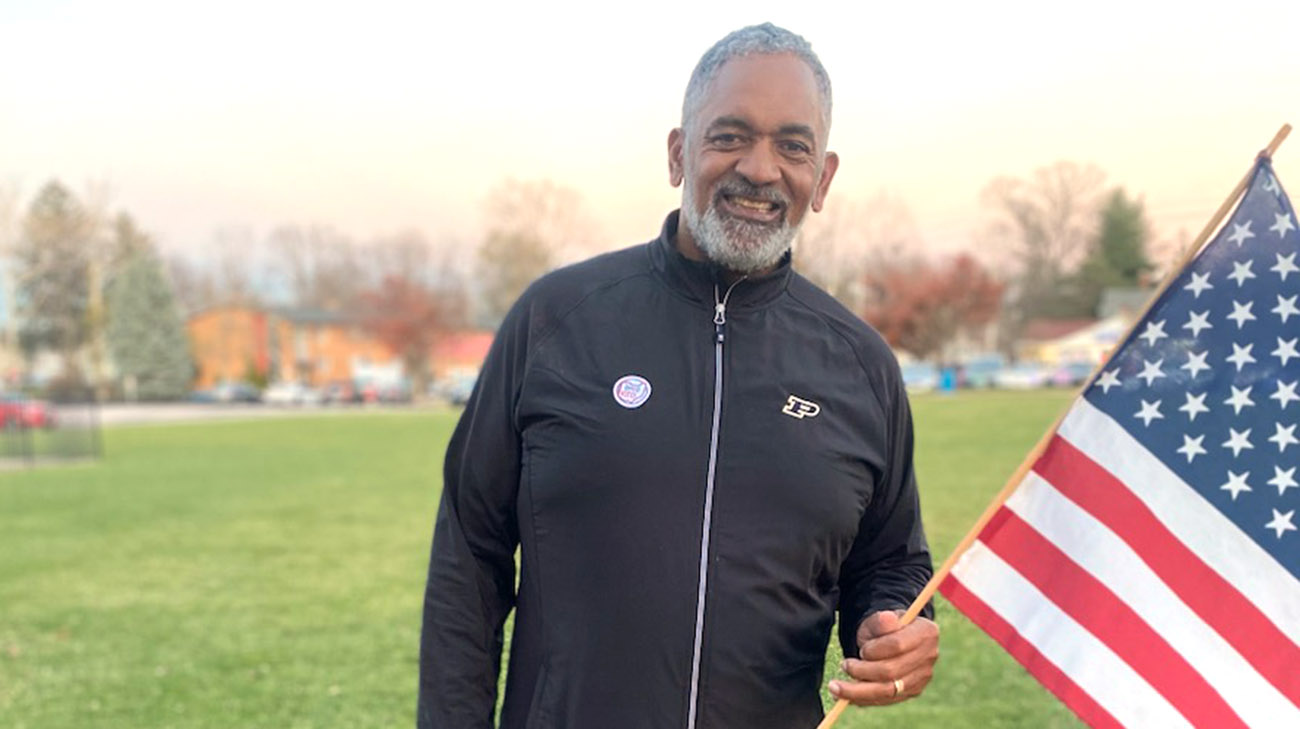
Chris Scott is not afraid to talk openly about his health issues. “Everybody is going through something in life. How would you know if you never talked about it?”
A former defensive lineman for the Indianapolis Colts, Chris, 62, encourages men to talk with one another about health issues. “We all need a good support group, so we don’t have to go through things alone.”
As a member of the National Football League Players Association, Chris visited Cleveland Clinic’s executive health program for a physical and assessment in 2019. His lab results were concerning, he remembers, because he was about 50 pounds overweight. Motivated to lose weight, a few years later a friend recommended the keto diet. He tried the eating plan and increased his activity.
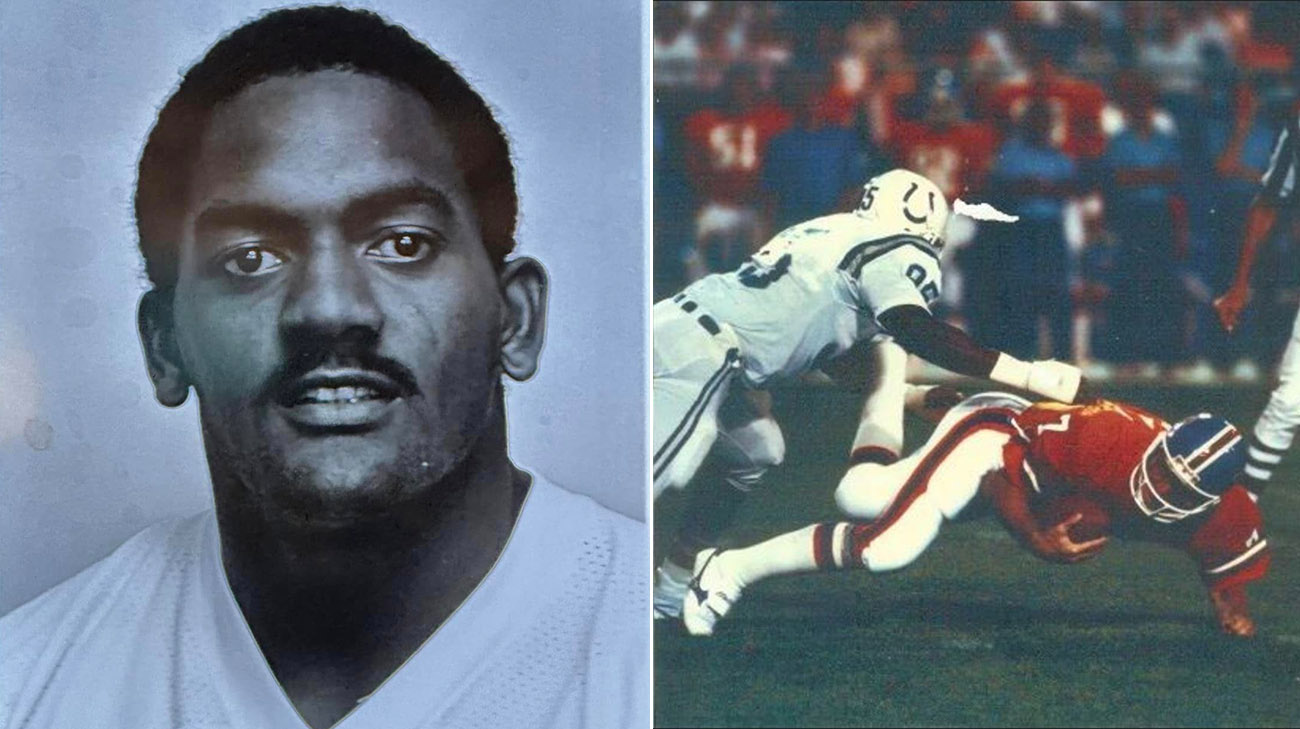
Chris is a former defensive lineman for the Indianapolis Colts. (Courtesy: Chris Scott)
When he returned for a physical in early 2024, he had dropped the extra weight, and his lab results had all improved. The only concern that was flagged was an elevated prostate-specific antigen or PSA level.
“And just like that an appointment was scheduled for me with a urologist before I left the office,” Chris says. He saw Irma Lengu, MD, at Cleveland Clinic Middleburg Heights Family Health Center. Chris says he loved the convenience of going there, since he lives nearby in Berea, Ohio.
Because of Dr. Lengu’s concern, Chris underwent a biopsy that day. Twelve samples were taken and all 12 showed prostate cancer. “I felt like it was a death sentence,” Chris says.
Chris and his wife first discussed Chris’ options with Dr. Lengu, who recommended they meet with urologist and surgeon Robert Abouassaly, MD. During their meeting with Dr. Abouassaly, they talked about radiation therapy or a surgical procedure called a robotic radical prostatectomy, the removal of the prostate. They carefully considered the pros and cons of each.
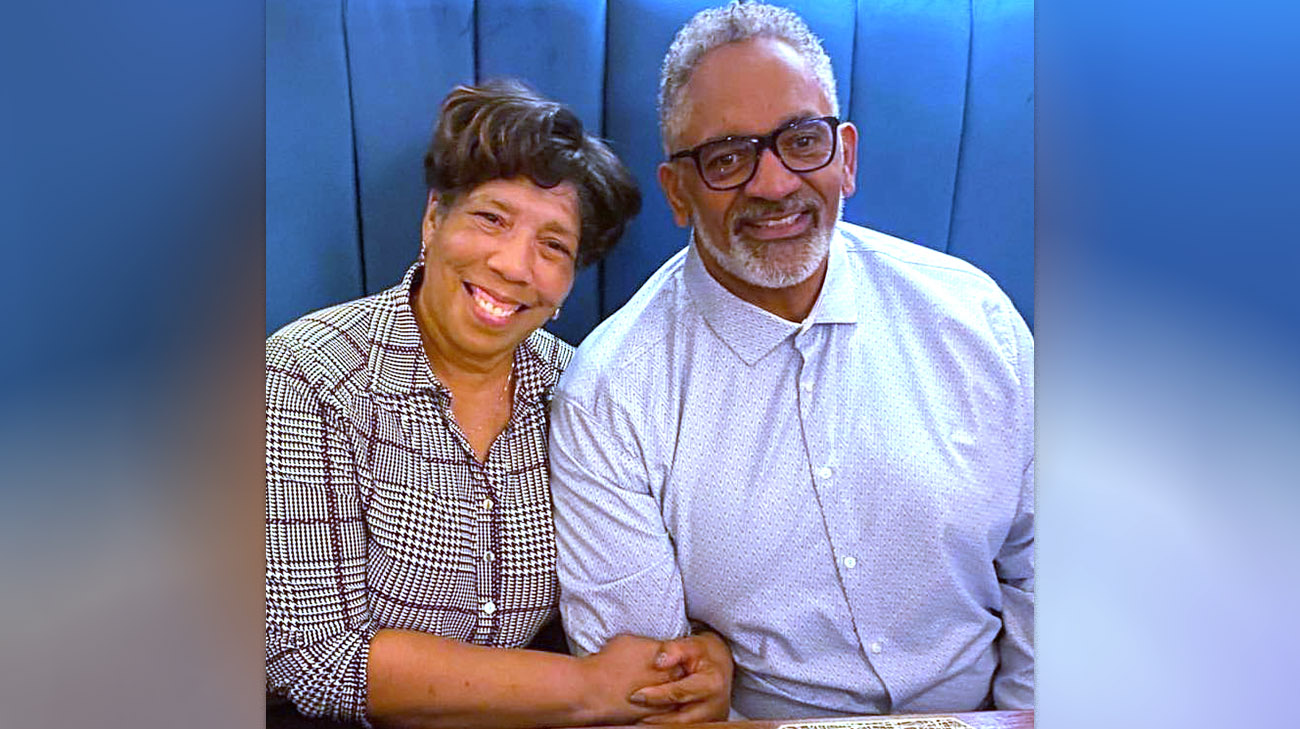
Chris with his wife, Debra. (Courtesy: Chris Scott)
“For my wife and me, it was a no brainer,” Chris says. “I chose life.”
In April 2024, Chis underwent an MRI prior to surgery. It helped doctors confirm localized disease and was used for surgical planning. Dr. Abouassaly performed the surgery at Cleveland Clinic Fairview Hospital. A PSA test one month later confirmed Chris no longer had evidence of cancer.
Looking back, Chris says he’s grateful for his healthcare team. “They were empathetic, compassionate and thorough. They want to see patients succeed, and I appreciate that.”
Today, Chris says he tries to eat healthy foods and stay active. He became a certified fitness trainer and now works with members of his church, Heritage Congregational in Berea, to promote activity for older members. They play video game bowling, have lunch, then do chair exercises.
Chris says he had a good career and great experiences in the NFL. At Purdue University, he played with teammates who remain friends and have a text chain, like a prayer circle, he says.
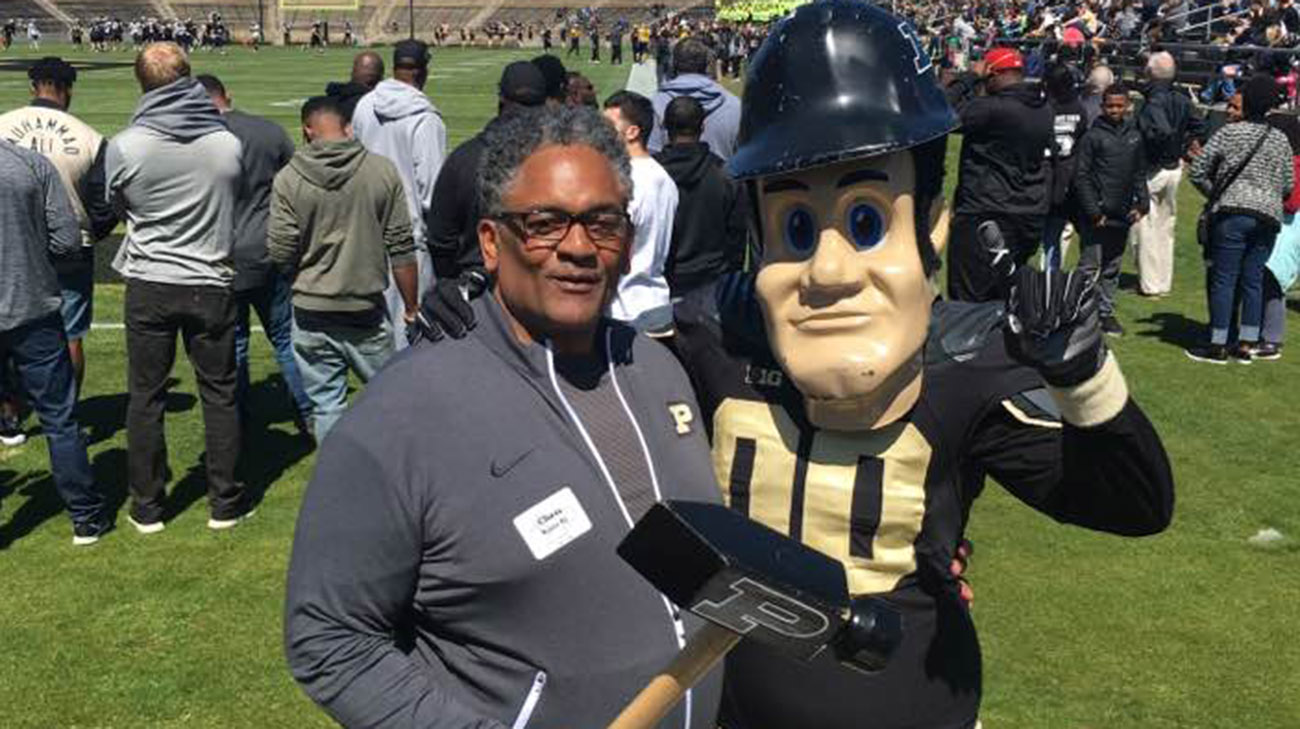
Chris developed a strong group of friends while attending Purdue University. He still keeps in touch with them to this day. (Courtesy: Chris Scott)
When Chris shared his health issues with the group, he was surprised when a few of them opened up about their own prostate issues. “They encouraged me and motivated me,” he says. Chris jokes it felt like a prostate club.
“When you are going through something, you have to talk about it and tell your family and friends,” he says. “They can help you through it, support you and pray for you.”
Dr. Abouassaly, says studies suggest Black men have a two-to-three times greater risk of developing prostate cancer than white men in America. He says studies also show that when Black men see a physician for prostate issues, the disease is often more advanced.
Cleveland Clinic conducts an annual MENtion It campaign to raise awareness of prostate cancer and other health issues specific to men. One of the findings in the annual health survey is that most men are afraid of getting cancer, but rates of screenings and cancer awareness remain low.
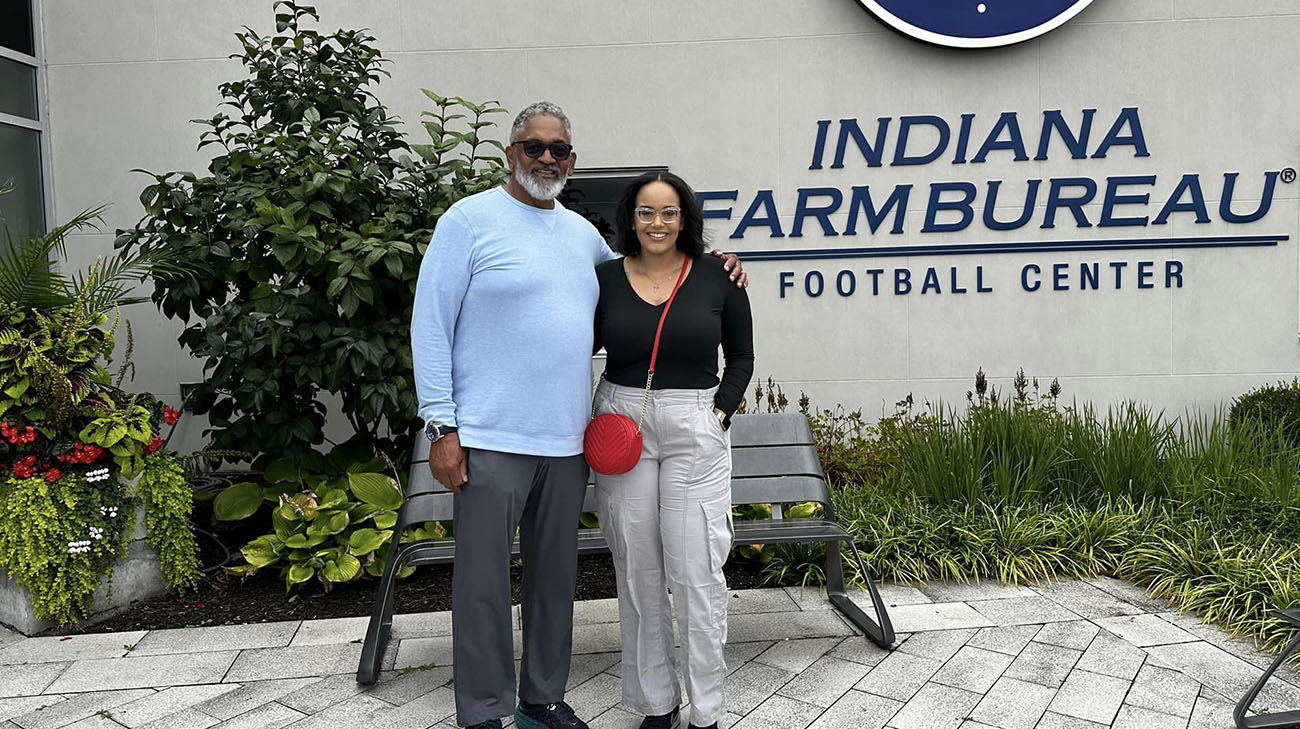
Chris with his daughter, Kitty, outside the Indiana Farm Bureau Football Center. (Courtesy: Chris Scott)
“If we can inform men about prostate cancer and encourage them to seek treatment sooner, there are more options,” says Dr. Abouassaly.
His advice for men is to “feel comfortable with their provider, ask questions and have frank discussions about options. We want men to be proactive and make informed decisions about their health.” If men take that approach, Dr. Abouassaly says there is a lot less regret.
Chris encourages men to have an advocate -- a spouse or a friend – who can ask the right questions and be supportive along the way. He says, “Everyone is going through something in life. We need to communicate with others who can help us through it.”
Related Institutes: Cleveland Clinic Cancer Center, Glickman Urological & Kidney Institute

